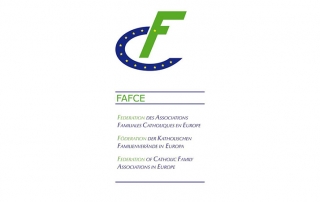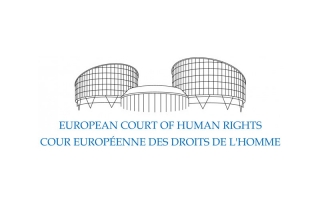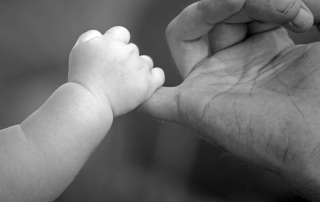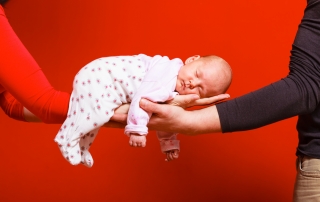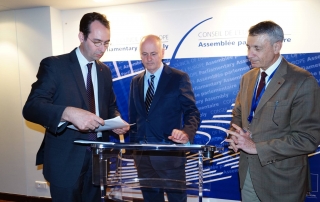Council of Europe
The Council of Europe is a human rights organisation, based in Strasbourg (France), whose stated aim is to uphold human rights, democracy and the rule of law in Europe. Founded in 1949, it has 47 Member-States, including the 27 EU Member-States. Unlike the EU, the Council of Europe cannot make binding laws, however it has the power to enforce international agreements reached by European states on various topics.
Since 2001, FAFCE has been granted a participatory status to the Council of Europe, and supports the rights of the family in the different institutions of the Council of Europe:
- European Court of Human Rights: composed of judges from each Member-State, it ensures the respect of the obligations of Member-States under the European Convention on Human Rights (1950). The Court rules on individual or State applications alleging violations of the civil and political rights set out in the Convention.
- Committee of Ministers: composed of the Foreign Affairs Ministers, usually represented by Permanent Representatives and Ambassadors, it is the decision-making body of the Council of Europe.
- Parliamentary Assembly: composed of parliamentarians from all Member-States, it adopts resolution and recommendations to governments.
- Congress of Local and Regional Authorities of Europe: composed of political representatives from local and regional authorities, it issues opinions on fundamental rights affecting regions and cities.
- Conference of INGOs: composed of NGOs with a participate status, it produces opinions based on the ground expertise of NGOs.
Press release | Surrogacy stopped again at the Council of Europe
Strasbourg, 11 October 2016 There is no room for ambiguity on the practice of surrogacy. Today the Parliamentary Assembly of the Council of Europe (PACE), during a plenary sitting, rejected a draft recommendation on surrogacy presented by the Belgian Senator Dr. Petra De Sutter
Press Release | Surrogacy: which recommendation from the Council of Europe?
The Committee rejected the draft Resolution and proposed a draft recommendation to the Committee of Ministers Paris, 21 September 2016 Today the Committee on Social Affairs, Health and Sustainable Development of the Parliamentary Assembly of the Council of Europe (PACE) rejected again
Press release | Reserving marriage to a man and a woman is not discriminatory, says the European Court of Human Rights
Brussels, 9 June 2016 Reserving marriage to a man and a woman is not discriminatory. This was confirmed by a ruling of the European Court of Human Rights (ECtHR) published today. In the case Chapin and Charpentier v. France (known in France
Surrogacy: a violation of human dignity
Surrogacy: a violation of human dignity. Motherhood: a precious gift, to respect and protect". This was the incipit of a Resolution adopted by the FAFCE Board at its last spring meeting in Portugal. With this resolution the great
Press Release | Council of Europe Report on Surrogacy rejected – a step ahead for human dignity
Brussels, 15 March 2016 Today the Social Affairs Committee of the Parliamentary Assembly of the Council of Europe rejected a draft report on Human Rights and ethical issues related to Surrogacy. The rejection is good news for human
Surrogate Motherhood: Ethical Implications & Proposals for Legislation
Already in 2005, FAFCE invited the Members of the PACE to reflect in depth on the problems that may arise in surrogacy arrangements and on other objections to surrogacy[i]. Whilst recognising the natural desire of every person to
Press Release | Surrogacy Motherhood debated at the Council of Europe – are Human beings a commodity?
Human beings, a commodity? Surrogacy Motherhood leads to commercialisation of women and children, prices for Surrogacy Motherhood can range from 76,000 to 171,000 US $. Brussels, 18 November 2015 On Monday 23 November the Committee on Social Affairs, Health and
Surrogacy: the slippery slope towards ‘the right to a child’
Rocio Franch Oviedo In recent years, courts across Europe and, in particular, the European Court of Human Rights (ECHR) have been following a trend in favour of accepting surrogacy in relation to the "child's best interests”. In most cases,
Press Release | Lack of Conscientious Objection Clause for Medical Staff in Sweden – Decision of the European Committee of Social Rights
Brussels, 18 June 2015 Contrary to Resolution 1763 adopted by the Parliamentary Assembly of the Council of Europe (PACE) on 10 October 2011, Medical Staff in Sweden have no legal right to conscientious objection in case of ethically
Press Release | Rights of late abortion survivors to be considered by Council of Europe Body
Signed by more than 185,000 citizens, the Bureau of the Parliamentary Assembly of the Council of Europe (PACE) formally received the "Petition for the rights of new-borns surviving their abortion", deciding to forward it to the Committee on Legal Affairs and Human Rights.

